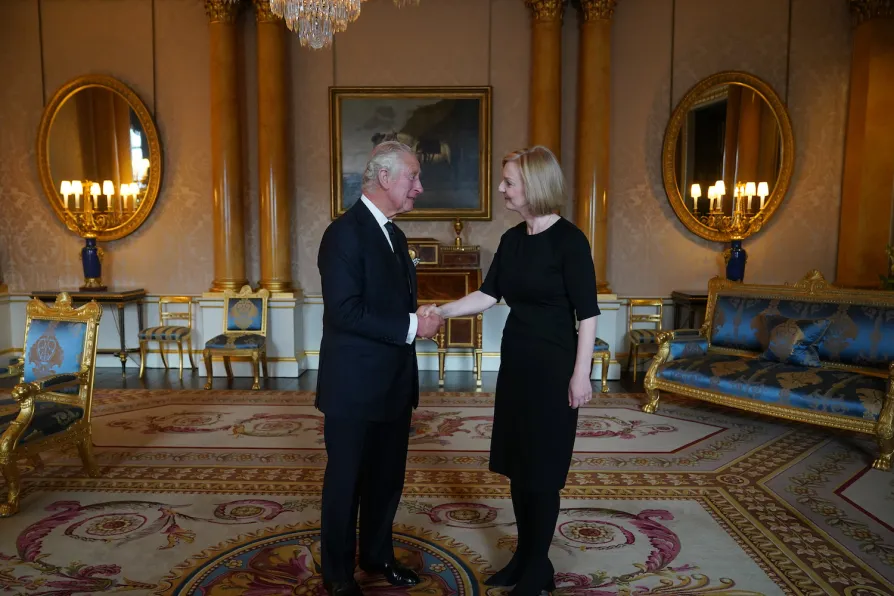As tens of thousands return to the streets for the first national Palestine march of 2026, this movement refuses to be sidelined or silenced, says PETER LEARY

 Charles shakes hands with Prime Minister Liz Truss during their first audience at Buckingham Palace, London, following the death of Queen Elizabeth II on Thursday. Picture date: Friday September 9, 2022.
Charles shakes hands with Prime Minister Liz Truss during their first audience at Buckingham Palace, London, following the death of Queen Elizabeth II on Thursday. Picture date: Friday September 9, 2022.
LIZ TRUSS was elected as Tory leader and hence appointed Prime Minister after beating Rishi Sunak by 57 per cent to 43 per cent of the 141,000 votes cast. The turnout was 82 per cent (it was largely an e-ballot) meaning the Tory membership is currently 172,000.
The 80,000 votes Truss got was rather less than the 85,000 CWU members who have recently taken strike action over a 2 per cent pay offer. That vote easily passed the 50 per cent threshold of those entitled to vote which applies to trade unions, but not elsewhere. Truss got 47 per cent of the vote — so were it a union ballot, it would have been declared invalid, as the TUC noted.
Membership of political parties is not high in Britain with the exception of Labour. Here membership rose to over 500,000 under Jeremy Corbyn’s leadership but had declined somewhat to 432,000 by December 2021. It may well now be lower still, but easily dwarfs Tory numbers.

‘Honest’ Tom Wharton’s 1682 drunken rampage through St Mary’s church haunted his political career, but his satirical song Lillibullero helped topple Catholic James II during the Glorious Revolution, writes MAT COWARD

KEITH FLETT traces how the ‘world’s most successful political party’ has imploded since Thatcher’s fall, from nine leaders in 30 years to losing all 16 English councils, with Reform UK symbolically capturing Peel’s birthplace, Tamworth — but the beast is not dead yet












